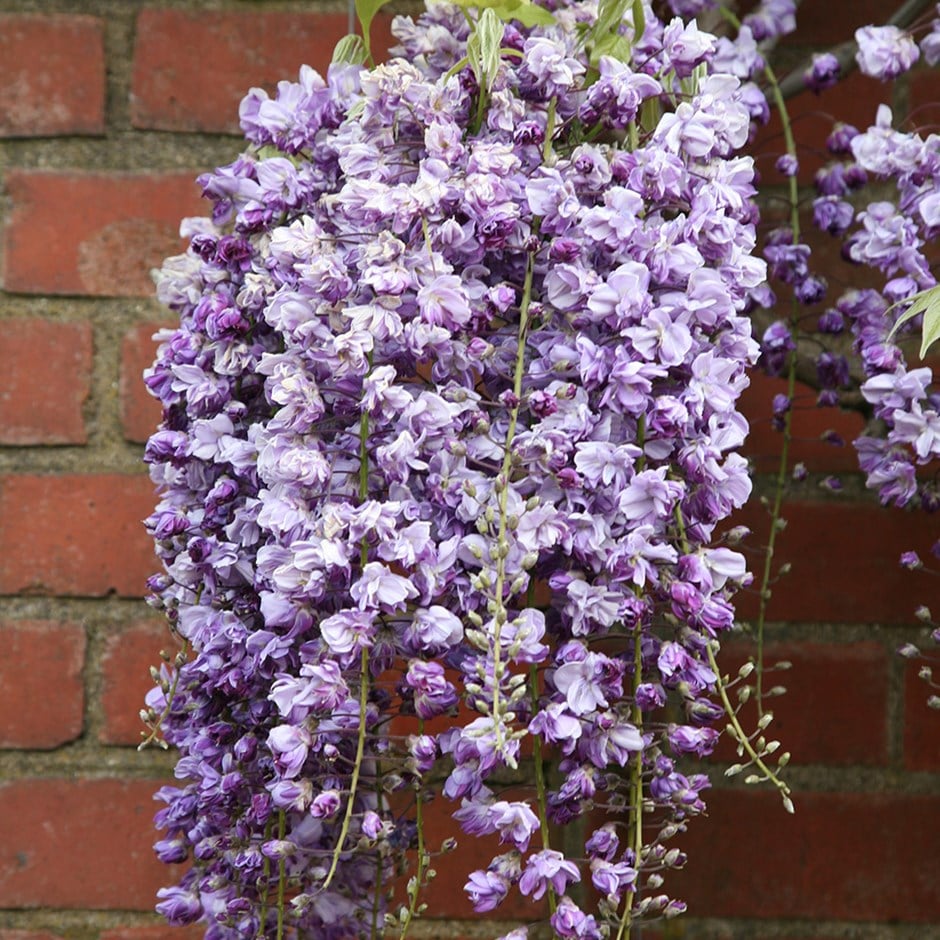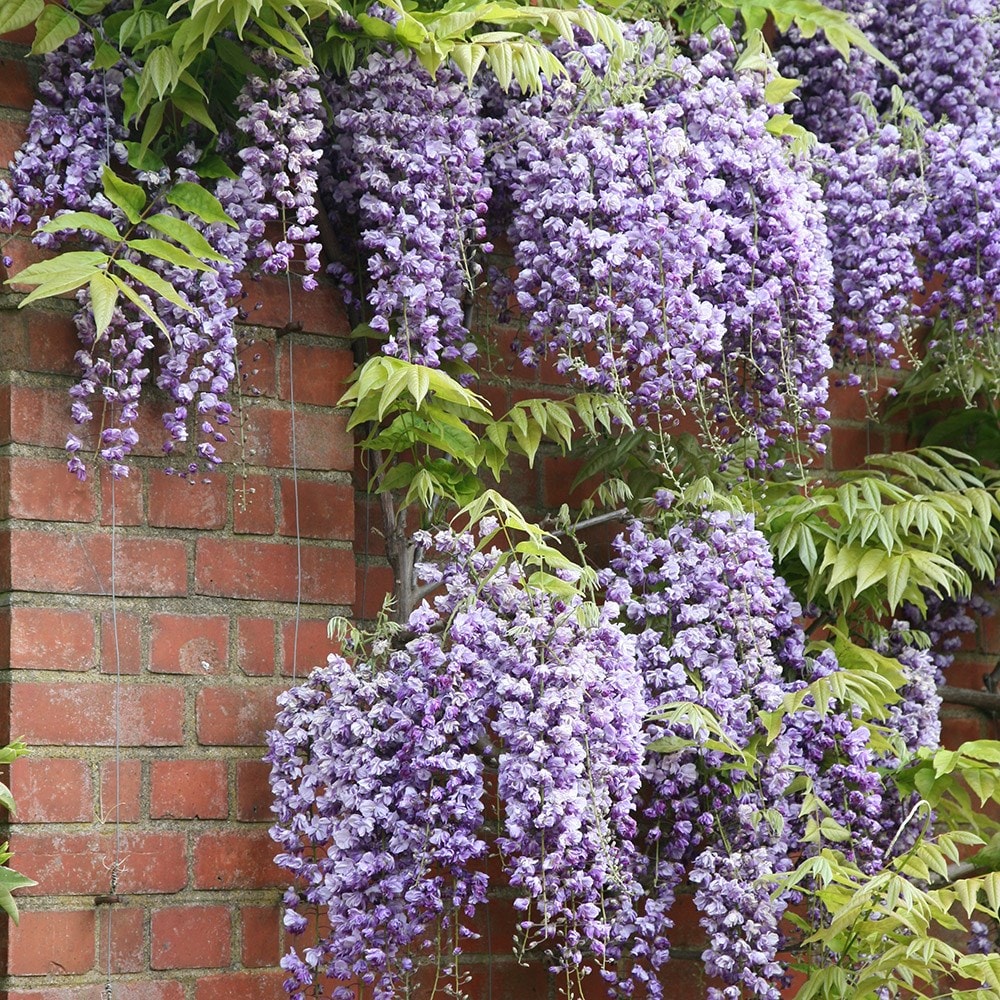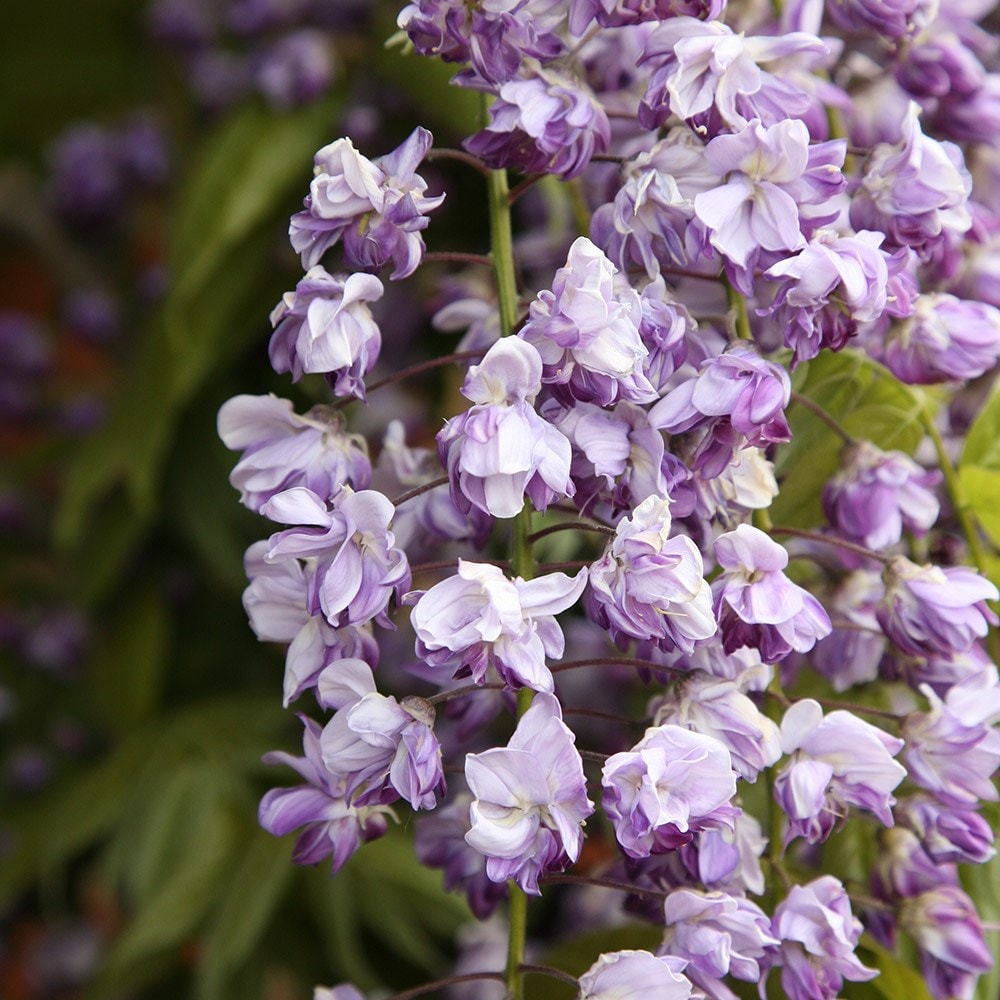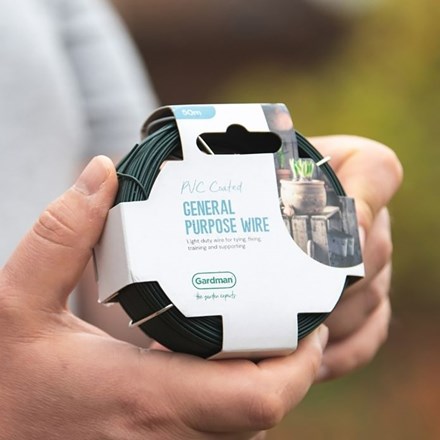Wisteria floribunda 'Yae-Kokuryū'
Japanese wisteria ( syn. Wisteria Double Black Dragon / Wisteria Violacea Plena)
Eventual height & spread
Wisteria floribunda 'Yae-Kokuryū'
Japanese wisteria ( syn. Wisteria Double Black Dragon / Wisteria Violacea Plena)
- 5 litre pot | 1.5m cane | grafted
- £129.99
- available to order from mid summer
- 3 litre pot | 60cm cane | grafted
- £37.99
- In stock (shipped within 1-2 working days)
- 10 litre pot | 1.5m cane | grafted
- £149.99
- available to order from mid summer
Delivery options
- Standard £5.95
- Position: full sun or light, dappled shade
- Soil: moderately fertile, moist but well-drained soil
- Rate of growth: fast
- Flowering period: May to June
- Hardiness: fully hardy
The stems of this gorgeous wisteria are laden with an abundance of pendent trusses in late spring or early summer, each packed with lightly scented, fully-petalled, lilac flowers. Appearing at around the same time as the new foliage, the flowers of 'Yae-Kokuryu' will put on a terrific display when trained over a sturdy pergola, or secured onto a large wall.
This plant has been vegetatively propagated, so will flower earlier than those grown from seed.
This plant has been vegetatively propagated, so will flower earlier than those grown from seed.
When planting, incorporate some well-rotted garden compost into the planting hole and dust the rootball with mycorrhizal fungi. Position the wisteria 30cm (12in) away from the supporting structure and then angle the plant towards it. In the first growing season, keep the climber well watered, especially during warm, dry periods. To encourage flowering, prune the twining stems twice yearly: once in summer (about two months after the flowering has finished) and again in mid-winter. In summer, cut back the wispy stems on both the laterals and sub-laterals (the side shoots from the laterals) to about five or six buds from the main branches. In winter, cut back these stems even harder to within two or three buds of the main branches. These form the short spurs that will go on to produce flowers in the following spring.
- Humans/Pets: Harmful if eaten



